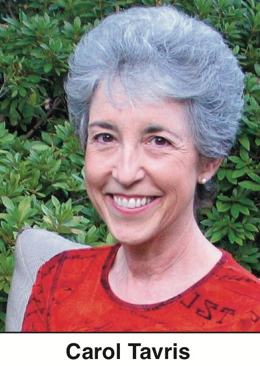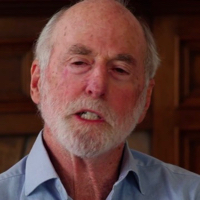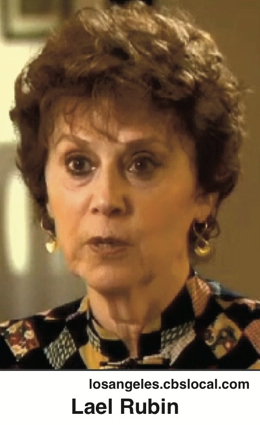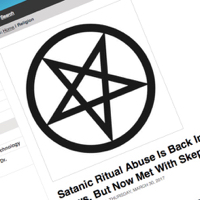Rascals case in brief
In the beginning, in 1989, more than 90 children at the Little Rascals Day Care Center in Edenton, North Carolina, accused a total of 20 adults with 429 instances of sexual abuse over a three-year period. It may have all begun with one parent’s complaint about punishment given her child.
Among the alleged perpetrators: the sheriff and mayor. But prosecutors would charge only Robin Byrum, Darlene Harris, Elizabeth “Betsy” Kelly, Robert “Bob” Kelly, Willard Scott Privott, Shelley Stone and Dawn Wilson – the Edenton 7.
Along with sodomy and beatings, allegations included a baby killed with a handgun, a child being hung upside down from a tree and being set on fire and countless other fantastic incidents involving spaceships, hot air balloons, pirate ships and trained sharks.
By the time prosecutors dropped the last charges in 1997, Little Rascals had become North Carolina’s longest and most costly criminal trial. Prosecutors kept defendants jailed in hopes at least one would turn against their supposed co-conspirators. Remarkably, none did. Another shameful record: Five defendants had to wait longer to face their accusers in court than anyone else in North Carolina history.
Between 1991 and 1997, Ofra Bikel produced three extraordinary episodes on the Little Rascals case for the PBS series “Frontline.” Although “Innocence Lost” did not deter prosecutors, it exposed their tactics and fostered nationwide skepticism and dismay.
With each passing year, the absurdity of the Little Rascals charges has become more obvious. But no admission of error has ever come from prosecutors, police, interviewers or parents. This site is devoted to the issues raised by this case.
On Facebook
Click for earlier Facebook posts archived on this site
Click to go to
Today’s random selection from the Little Rascals Day Care archives….
Click for earlier Facebook posts archived on this site
Click to go to
Today’s random selection from the Little Rascals Day Care archives….
When imaginary crime leads to real punishment
 Aug. 20, 2015
Aug. 20, 2015
“In the mid-1980s, a friend of mine testified on behalf of an elementary-school teacher who had been accused of being a pedophile.
“A child had told his mother that the teacher had taught them about ‘boobies and dicks’ and had drawn a picture on the blackboard that sounded suspiciously to the mother like an image of an ejaculating penis.
“The police had raced to the classroom and confiscated the damning evidence: several copies of ‘Moby-Dick.’ What the teacher had drawn was a whale and its spout.
“Looking back, we can see that the only boobies involved in this case were the adults. But whenever we are in the midst of a moral panic, as we were in the 1980s, we feel that our alarm is reasonable and that punitive solutions are appropriate.
“Dicks? That child knew the word ‘dicks’? Cancel sex ed! Run that teacher out of town!…”
– From “A Very Model Moral Panic” by Carol Tavris in the Wall Street Journal (Aug. 7)
Child-witnesses, now in their 30s, reject call to speak up

YouTube
Dr. Lee Coleman
July 7, 2019
For those seeking to understand the Little Rascals Day Care case one particularly intriguing question remains: How do the former child-witnesses, now well into their 30s, look back at their central role?
Do they believe today that their testimony was accurate? Or have they come to realize that those bizarre sexual accusations – as well as the accounts of sharks, spaceships and burning babies – were products of sheer fantasy? And that they had been relentlessly manipulated by the prosecution’s therapists?
Last month I sent letters to the Little Rascals witnesses in hopes that they would be ready to talk about their experiences. Here’s what I said:
“I apologize if this letter is unwelcome. For the past eight years I have been researching the Little Rascals Day Care case. I’m writing you because as a child you were a witness for the prosecution in Bob Kelly’s trial in 1991-92. The court records include a passage describing your testimony.
“I blog at littlerascalsdaycarecase.org, and I have worked with Duke Law School to build an archive on the case. My aim is to persuade the State of North Carolina to issue the Edenton Seven a statement of innocence similar to the one given the defendants in the Duke lacrosse case.
“I don’t know how you look back at your involvement in the case, and you are certainly under no obligation to tell me. But if you might be willing to share your recollections – however they might agree or conflict with your testimony – please contact me….”
In the decades since the “satanic ritual abuse” day care prosecutions few child-witnesses have chosen to step forward. One who did so – anonymously – looked back with sadness at the McMartin case: “It is my belief, after years of treatment centers and therapy, that nothing physical happened to me…. Mentally, well, that’s a different story. How about paying attention to the kids that were scarred from this therapy? Do you think that just because there was most likely no physical abuse that we didn’t still suffer?”
After receiving no responses to my letter, I asked Lee Coleman what he would advise those still-silent Little Rascals child-witnesses. Dr. Coleman, a Berkeley, Calif., psychiatrist, has testified in some 800 child sex-abuse cases, of which perhaps 100 involved day-care or preschool allegations. In this YouTube presentation he analyzes the McMartin Preschool case.
He replied to my request with this open letter (condensed) to the Little Rascals child-witnesses:
First, it is now recognized by all parties – prosecutors, judges, defense attorneys, academic students of memory and suggestibility in young children being interviewed for possible sexual abuse – that the methods used in Little Rascals had serious potential to influence memory, often creating a mental picture that to the child is indistinguishable from an actual memory of actual events.
This brings us to the very heart of my message to you, as you seriously consider whether justice may be served by your coming forth with what you remember of how you were interviewed and who you spoke to prior to the trial. Remember, it is not your memories of what did or didn’t happen at the school that is important, but your memories of how you were interviewed, and of who you spoke with during the time before the trial. This is the crucial time, and these are the crucial events, that any fair decision about the meaning of what you said during the trial can be best judged.
What I cannot stress enough is that if you testified to things that were not true, that was through no fault of yours, because such false testimony would be the fault of poor and suggestive interview methods, therefore neither lies, nor any indication of your sincerity as a child. If a child says things that he or she believes are true, because interview methods cause the child to accept ideas coming from interviewers rather than the child’s actual memory, then the fault lies with the interviewers and not the child.
To blame the child for misdeeds of poorly trained interviewers is, in my opinion, a kind of child abuse. I have testified about these issues hundreds of times, and most recently spoken about these issues as part of my continuing effort to bring understanding to our nation’s system of bringing justice to the area of sexual abuse of children. Such abuse, when it happens, calls for punishment of perpetrators and support of victims. When unprofessional conduct by prosecutors and their assistants causes children to be victims of suggestions that create false memories, this also calls for a better response from our society.
I thank you for taking the time to reconsider that time in your life and reconsider whether you might bring the best resolution to the efforts of Mr. Powell and others seeking justice in the Little Rascals Day Care case.
Sincerely,
Lee Coleman, MD
Second thoughts from a ‘ritual abuse’ prosecutor?
 Aug. 17, 2014
Aug. 17, 2014
“I’m not comfortable commenting on any of them at this point in time.”
– Lael Rubin, formerly the lead prosecutor in the McMartin Preschool case, declining to say whether she still thinks the defendants were guilty
That’s not the only eyebrow-raiser in this recent 30-years-after piece by a Los Angeles TV station.
Rubin contends that “The strongest evidence, the physical evidence, the medical evidence, I think was very significant.” But Kevin Cody, who logged more hours in the courtroom than any other journalist, confirms my impression that the prosecution actually produced “zero medical evidence of abuse.”
Finally, Rubin credits the McMartin case with improvements in the interviewing of children: “The criminal justice system, interviewers and police, law enforcement are much more concerned about eliciting information from children, as opposed to giving them clues.”
This is disingenuous. Like John E. B. Myers, Kee MacFarlane and Sylvia Gillotte – Rubin tips her hat to progress but refuses to take the logical next step: admitting the injustices issuing from those McMartin-style interrogations.
Press decides to let Sir Edward Heath rest in peace
 April 6, 2017
April 6, 2017
“Beginning with the McMartin preschool case in 1984… much of the media accepted without question fantastic claims brought by police, parents and prosecutors. But by the early 1990s when the courts began tossing out convictions based on recovered memories, coached testimony, and magical thinking, the media backed away….
“Two stories in the U.S. and British press have resurrected SRA: Pizzagate and abuse claims lodged against deceased British Prime Minister Edward Heath. However, this time round these stories are being treated with skepticism ….
“Abuse is a serious enough crime without having the false and inflammatory adjective of ‘satanic’ appended to it. I am glad to see The Sun and Mail on Sunday are treating this aspect of the claims as being ridiculous….”
– From “Satanic Ritual Abuse Is Back In The News, But Now Met With Skepticism” by George Conger at the Media Project (March 30)
![]()











0 CommentsComment on Facebook